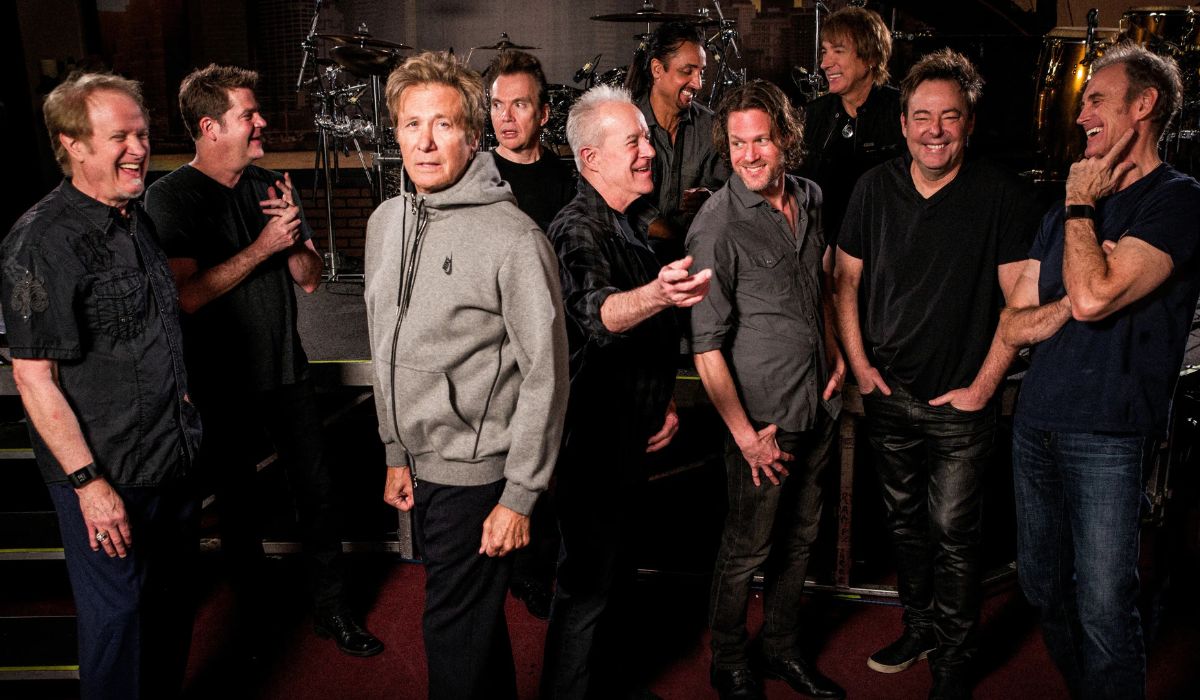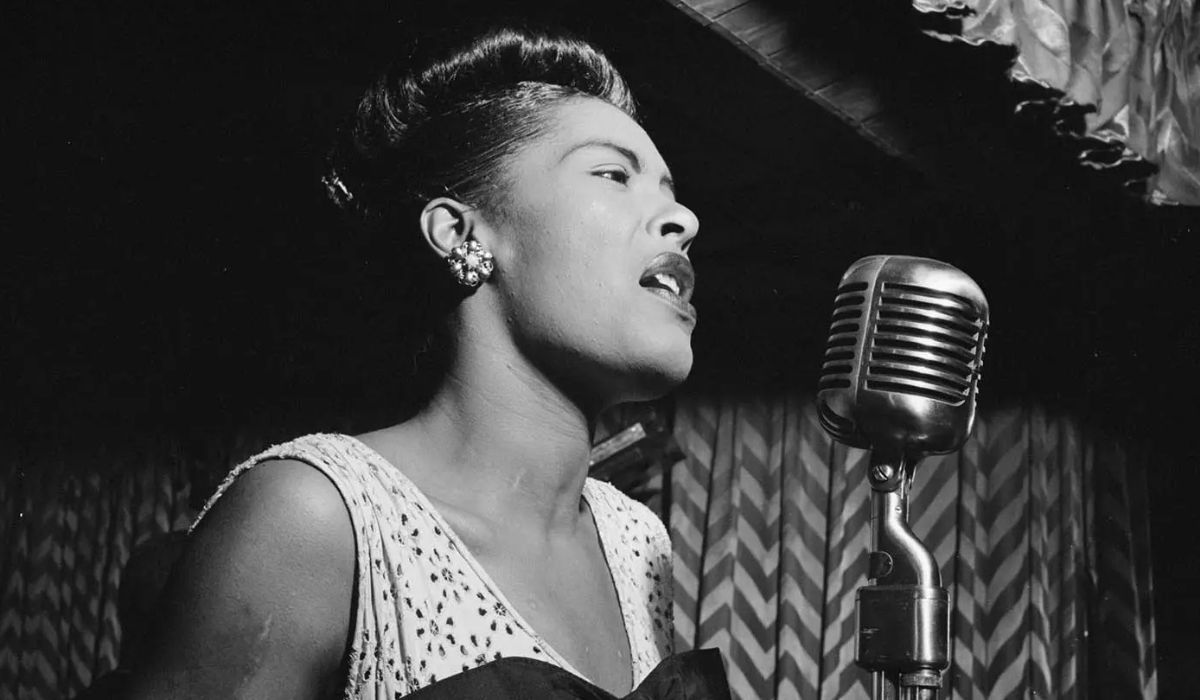Home>Instruments>Vocalist>What Is A Vocalist?


Vocalist
What Is A Vocalist?
Published: January 23, 2024
Discover what it means to be a vocalist and the skills required for this musical role. Unlock your potential as a talented singer and performer.
(Many of the links in this article redirect to a specific reviewed product. Your purchase of these products through affiliate links helps to generate commission for AudioLover.com, at no extra cost. Learn more)
Table of Contents
Introduction
A vocalist is more than just a singer. They are the artists who bring life to music through their voice and interpretation. Whether belting out powerful ballads, hitting high notes with precision, or delivering emotional performances, vocalists play a crucial role in the music industry.
With their dynamic range, vocalists can captivate audiences and evoke a wide range of emotions. From pop to opera, jazz to rock, vocalists are found in every genre and are essential to the success of any musical composition.
But what exactly does a vocalist do? What skills and qualities are necessary to excel in this profession? And what types of vocalists are there? In this article, we will delve into the world of vocalists, exploring their roles, training, techniques, and the challenges they face.
Whether you’re an aspiring vocalist, a music enthusiast, or simply curious about the world of singing, join us on this journey to uncover the mysteries and intricacies of the vocalist’s craft.
What Does a Vocalist Do?
A vocalist is a singer who specializes in using their voice as the primary instrument to convey emotions, tell stories, and bring life to music. They work collaboratively with musicians, composers, and producers to create memorable performances. Here are some of the key responsibilities of a vocalist:
- Performing Songs: The primary role of a vocalist is to deliver exceptional vocal performances on stage or in the recording studio. They bring the lyrics and melody of a song to life by using their voice to express the intended emotions and convey the message of the music.
- Vocal Arrangements: Vocalists often contribute to the arrangement and interpretation of songs. They have the ability to create harmonies, add vocal embellishments, and experiment with different vocal styles to enhance the overall sound of a composition.
- Collaboration: Vocalists work closely with musicians, bands, and producers to develop and refine their performances. They collaborate during rehearsals, recording sessions, and performances to ensure that the vocals blend seamlessly with the music and other instruments.
- Live Performances: Many vocalists perform in front of live audiences, whether it’s at concerts, music festivals, or theaters. They engage with the crowd, command the stage, and captivate the audience with their vocal prowess and stage presence.
- Recording Sessions: Vocalists spend time in recording studios, laying down vocal tracks for albums, singles, commercials, or soundtracks. They work closely with producers and audio engineers to capture the best possible vocal performance, ensuring that it complements the overall sound of the recording.
Overall, a vocalist is a versatile musician who uses their voice to bring songs to life, adding depth and emotion to the music. They are the focal point of many performances, drawing the listeners’ attention through their singing talent and ability to connect with the audience.
Skills and Qualities of a Vocalist
To become a successful vocalist, one needs a combination of natural talent, training, and a set of specific skills and qualities. Here are some of the essential attributes that contribute to the success of a vocalist:
- Vocal Technique: A vocalist must have a strong foundation in vocal technique. This includes breath control, pitch accuracy, vocal range, tone quality, and diction. They should be able to manipulate their voice to create different vocal qualities and styles.
- Musicality: A good sense of musicality is crucial for a vocalist. This includes understanding rhythm, dynamics, phrasing, and musical interpretation. The ability to listen to and synchronize with other musicians is also essential for ensemble performances.
- Performance Skills: A charismatic stage presence and the ability to connect with the audience are important qualities for a vocalist. They should be able to convey emotions through their performance, engage the audience, and create a memorable experience for listeners.
- Ear Training: Strong ear training skills help vocalists to accurately reproduce melodies, harmonies, and vocal arrangements. They should be able to recognize and sing in tune and harmonize with other singers or instruments.
- Versatility: Vocalists who can perform in various genres and adapt their style to different musical contexts have a competitive edge. Being able to sing different genres, such as pop, rock, jazz, classical, or R&B, widens their opportunities and audience reach.
- Stage Presence: An engaging stage presence can make a vocalist stand out. This includes confident body language, stage movement, and effective use of gestures and facial expressions to enhance the performance and connect with the audience.
- Emotional Connection: The ability to convey emotions authentically is a valuable skill for a vocalist. They should be able to convey a range of emotions, from joy and love to sadness and vulnerability, in order to truly connect with the listeners and bring the lyrics to life.
It is worth noting that while natural talent and abilities are essential, consistent practice, vocal training, and professional guidance play significant roles in developing and honing these skills. With dedication and a strong work ethic, a vocalist can continue to explore and expand their abilities, pushing the boundaries of their vocal performance.
Different Types of Vocalists
Vocalists come in a variety of types, each specializing in different genres, styles, and techniques. Here are some of the most common types of vocalists:
- Pop Vocalist: Pop vocalists are known for their catchy melodies, smooth vocals, and ability to deliver emotionally charged performances. They are versatile and often perform in mainstream music, with a focus on popular music trends.
- Classical Vocalist: Classical vocalists, also known as opera singers, possess powerful and trained voices. They specialize in singing classical music compositions, such as operas, oratorios, and art songs. Classical vocalists require disciplined vocal technique and the ability to project their voice in large theaters without the assistance of amplification.
- Jazz Vocalist: Jazz vocalists have a distinct style characterized by improvisation, scatting, and rhythmic phrasing. They often perform standards from the Great American Songbook and embrace a wide range of vocal techniques to express themselves in the jazz genre.
- R&B/Soul Vocalist: R&B and soul vocalists have rich, soulful voices that showcase emotion and passion. They excel in delivering smooth, heartfelt performances and often incorporate vocal runs, melisma, and gospel-inspired techniques into their singing.
- Rock Vocalist: Rock vocalists are known for their powerful and gritty voices, which can cut through loud guitars and drums. They often sing with intensity and convey raw emotions through their performances. Rock vocalists may have a wide vocal range and employ techniques such as screaming or growling, depending on the sub-genre.
- Country Vocalist: Country vocalists have a distinct twang in their voices and often tell stories through their lyrics. They focus on storytelling, honesty, and heartfelt performances, while showcasing a blend of traditional and modern country music styles.
- Experimental/Alternative Vocalist: Experimental or alternative vocalists push the boundaries of traditional singing techniques. They may incorporate unconventional vocal sounds, non-traditional scales, or unique vocal effects to create innovative and avant-garde compositions.
These are just a few examples of the diverse range of vocalists that exist. It’s important to note that many vocalists can navigate multiple genres and may not fit into a single category neatly. Each type of vocalist brings their own unique style, talent, and vocal abilities to the table, enriching the world of music with their individuality and artistic expression.
Training and Education for Vocalists
While some vocalists possess natural talent, professional training and education can provide them with the necessary skills, techniques, and knowledge to excel in their craft. Here are some common avenues for training and education for aspiring vocalists:
- Vocal Lessons: Working with a vocal coach or singing teacher is a valuable way for vocalists to develop and refine their skills. Vocal lessons focus on aspects such as breath control, pitch accuracy, vocal range expansion, and vocal health.
- Music Schools/Conservatories: Many aspiring vocalists pursue formal education in music schools or conservatories. These institutions offer comprehensive programs that cover various aspects of vocal training, music theory, ear training, and performance opportunities.
- University Music Programs: Vocalists can also enroll in university music programs that provide a more in-depth and structured education in vocal performance. These programs often include music theory, history, ensemble performance, and individual vocal training.
- Masterclasses and Workshops: Vocalists can participate in masterclasses and workshops conducted by renowned vocalists and industry professionals. These sessions provide valuable insights, guidance, and opportunities to refine their skills and gain performance experience.
- Summer Music Programs: Many summer music programs offer specialized training for vocalists. These programs often include intensive workshops, ensemble performances, and opportunities to collaborate with other musicians and vocalists.
- Audition Preparation: Vocalists preparing for auditions, competitions, or performances often seek specialized coaching to fine-tune their repertoire, strengthen their performance skills, and receive guidance on presentation and stage presence.
In addition to formal training, aspiring vocalists can benefit from participating in choirs, ensembles, and community theater productions to gain practical performance experience, enhance their musicianship, and develop their ability to sing in harmony with others.
It’s important to note that continued learning and growth are essential for vocalists throughout their careers. Many professional vocalists engage in ongoing training, attend vocal conferences and workshops, and seek mentorship from experienced vocalists to refine their skills and stay current with industry trends.
Ultimately, a combination of natural talent, dedicated practice, and formal training can give vocalists the tools they need to succeed and reach their full potential in their musical journey.
Vocal Techniques and Styles
Vocal techniques and styles play a significant role in shaping the unique sound and expression of vocalists. Here are some commonly used techniques and styles that vocalists employ:
- Breath Control: Proper breath control is essential for vocalists to maintain consistent and sustained singing. Techniques like diaphragmatic breathing help vocalists control the airflow and support the voice.
- Belting: Belting is a powerful vocal technique where vocalists sing with a chest-dominant voice, producing strong and resonant tones in the higher registers. It is often used in contemporary genres like pop, rock, and musical theater.
- Head Voice: Head voice is a lighter and higher register of the vocal range. It is employed by vocalists to produce softer and more delicate tones, often used in classical, folk, and contemporary ballads.
- Falsetto: Falsetto is a vocal technique where vocalists sing in a higher register beyond their normal range, producing a lighter and breathier tone. It is often employed in soul, R&B, and pop music to create intensity and emotional effects.
- Scatting: Scatting is an improvisational vocal style used primarily in jazz music. Vocalists use nonsensical syllables and rhythmic patterns to improvise melodies and solos, showcasing their creativity and musicality.
- Vocal Runs and Embellishments: Vocal runs and embellishments are melodic decorations used by vocalists to add flair and expressiveness to their performances. They involve rapid and intricate sequences of notes, often heard in R&B, gospel, and soul music.
- Vocal Harmonies: Vocal harmonies involve multiple vocalists singing different pitches simultaneously to create rich and layered textures. Vocalists must have a good ear for harmonies and be able to blend their voices smoothly.
- Melisma: Melisma is a vocal technique where multiple notes are sung on a single syllable, embellishing the melody and adding ornamentation. It is commonly used in gospel, R&B, and pop music to add vocal flourishes and expressiveness.
It’s important to note that vocal styles vary widely depending on the genre and the artistic choices of the vocalist. Each vocalist develops a unique style by combining different techniques, personal expression, and influence from their musical background.
Exploring different vocal techniques and styles not only expands a vocalist’s musical repertoire but also adds versatility and depth to their performances. By mastering various techniques, vocalists can adapt to different musical genres, collaborate with diverse artists, and bring a range of emotions to their singing.
Challenges Faced by Vocalists
While being a vocalist can be highly rewarding, it also comes with its own set of challenges. Here are some common challenges faced by vocalists:
- Vocal Health: Vocalists must prioritize their vocal health to prevent strain, fatigue, and potential vocal injuries. Overuse, improper technique, and inadequate rest can lead to vocal issues such as hoarseness, vocal nodules, or vocal fatigue.
- Performance Anxiety: Many vocalists experience performance anxiety, also known as stage fright, which can impact their confidence and performance. Nervousness, self-doubt, and fear of judgment may require methods to overcome anxiety, such as breathing exercises, visualization techniques, and confidence-building practices.
- Genre Adaptability: Vocalists who wish to explore different genres may face the challenge of adapting their vocal style to suit the requirements of different musical genres. Each style demands specific vocal techniques and nuances, requiring vocalists to continually develop and refine their skills.
- Vocal Stamina: Singing for extended periods, particularly during live performances or lengthy recording sessions, can challenge a vocalist’s vocal stamina. Building vocal endurance through proper vocal warm-ups, regular exercise, and vocal care routines is crucial to maintain consistency and vocal strength throughout performances.
- Competition: The music industry is highly competitive, and vocalists face the challenge of standing out among their peers. The constant pursuit of unique artistic expression, business acumen, and establishing a personal brand is essential for success in an industry with numerous talented vocalists.
- Vocal Range Limitations: Every vocalist has a vocal range, and limitations within that range can present challenges when attempting to perform songs that stretch beyond their comfortable range. Vocalists may need to work with vocal coaches to expand their range gradually and develop techniques to navigate challenging vocal passages.
- Recording Challenges: Recording vocals in the studio presents unique challenges. Vocalists must deliver consistent performances, adapt to different recording environments, and work closely with producers and engineers to capture the desired sound. The pressure to get the perfect take and the technical demands of studio recordings can be daunting.
Despite these challenges, vocalists who persevere, continuously develop their skills, and maintain a strong passion for their craft can overcome obstacles and thrive in their musical careers. It is through dedication, hard work, and a love for singing that vocalists can navigate the challenges they face and find fulfillment in their artistic pursuits.
Famous Vocalists
Throughout history, there have been countless vocalists who have made a significant impact on the music industry and captivated audiences worldwide. Here are just a few examples of famous and influential vocalists:
- Freddie Mercury: Known for his unparalleled vocals and energetic performances as the lead singer of Queen, Freddie Mercury is widely regarded as one of the greatest vocalists of all time. His vocal range, charisma, and ability to connect with audiences made him an iconic figure in rock music.
- Aretha Franklin: Revered as the “Queen of Soul,” Aretha Franklin possessed a powerful voice that could convey raw emotion and captivate listeners. Her soulful performances, exceptional vocal control, and chart-topping hits made her an enduring symbol of strength and female empowerment.
- Luciano Pavarotti: A legendary figure in the world of opera, Luciano Pavarotti was known for his stunning tenor voice and ability to effortlessly hit high notes. He was celebrated for his passionate interpretations and the warm, velvety tone of his voice, which helped popularize opera to a wider audience.
- Whitney Houston: Whitney Houston, with her extraordinary vocal range and effortless technique, left an indelible mark on the music industry. Her powerful voice, showcased in hits like “I Will Always Love You,” established her as one of the greatest pop vocalists of all time.
- Frank Sinatra: Known as “Ol’ Blue Eyes,” Frank Sinatra was a charismatic and influential vocalist in the realm of traditional pop music. His smooth, velvety voice and impeccable phrasing set a standard for interpreting popular standards, making him a cultural icon.
- Beyoncé: Beyoncé is a powerhouse vocalist known for her incredible vocal control, dynamic range, and precision. An international superstar, she has achieved numerous chart-topping hits and is admired for her soulful performances across various genres, from pop and R&B to soul and gospel.
- Elvis Presley: Often referred to as the “King of Rock and Roll,” Elvis Presley had a unique voice that blended rock, country, and gospel influences. His charismatic stage presence and unmistakable voice made him an enduring legend in the music industry.
These vocalists represent just a small fraction of the many talented artists who have left a lasting impact on the world of music. Their remarkable voices, distinctive styles, and ability to connect with audiences have solidified their places in music history, inspiring countless aspiring vocalists around the world.
Conclusion
Vocalists hold a unique and vital role in the music industry, using their voices to convey emotions, tell stories, and connect with audiences. They possess a range of skills, techniques, and qualities that enable them to bring life to music in various genres and styles.
From pop to opera, jazz to rock, vocalists captivate listeners with their exceptional vocal abilities and stage presence. They undergo rigorous training, education, and continuous practice to develop vocal techniques, expand their range, and cultivate their own distinct styles.
However, being a vocalist is not without challenges. Vocal health, performance anxiety, genre adaptability, and competition are hurdles that vocalists face along their musical journey. Yet, with dedication, perseverance, and a passion for their craft, vocalists can overcome these obstacles and achieve success in their careers.
Throughout history, famous vocalists have left an indelible mark on the music world. Their extraordinary talents, unique voices, and ability to connect with audiences have made them icons in their respective genres. From Freddie Mercury’s electrifying performances to Aretha Franklin’s soul-stirring voice, these vocalists have inspired generations of aspiring singers.
In conclusion, the world of vocalists is one of passion, dedication, and immense talent. Whether performing on stage, recording in the studio, or captivating audiences through their live performances, vocalists play a pivotal role in bringing music to life. Their voices have the power to evoke emotions, transcend boundaries, and create timeless moments that resonate with listeners worldwide.











